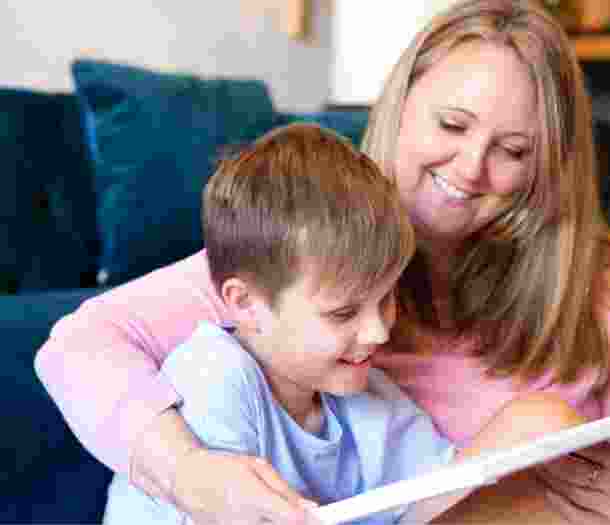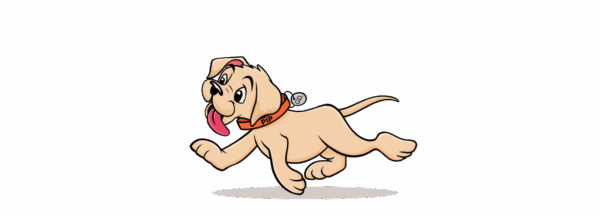Support for infants - age 5
Finding out your child has low vision or blindness can be scary and overwhelming.
We are here to walk alongside you, your family and your child as they grow into adulthood.
Our devoted team will work with you to help you gain more knowledge and confidence, while helping your child learn the necessary skills they need to reach their full potential. It is never too early to start.
Children learn by watching, exploring and interacting with others. Children who are blind or have low vision are no different, they may just need a little extra support and time.
By teaching your child alternative ways to learn, we can help them gain the practical skills they need to grow. Our services for babies and toddlers range from Occupational Therapy, Psychology, Orientation and Mobility.
For further information please call our friendly team on 3500 9060 or email clients@guidedogsqld.com.au.
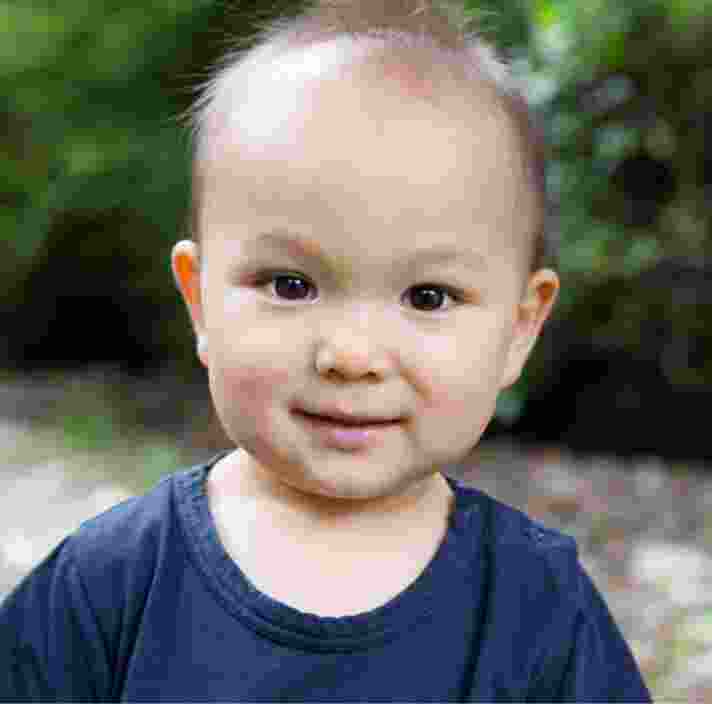
Programs for young children
We offer several programs to support your child to reach their full potential.
We all learn to interact with the world from a young age. Through safe play and exploring new environments with confidence, we learn about ourselves, each other, and how to be part of a community.
Children with low vision or blindness are no different. However, they need to develop a different set of skills to understand and move through the world. These skills are taught as part of our Children’s Programs presented by a range of practitioners including Orientation and Mobility Specialists, Occupational Therapists and a Psychologist.
Every child deserves to be able to explore the world freely, confidently and safely. We can help your child develop the skills they need to achieve big milestones and grow into independent, happy adults. What this looks like is up to you, your child, and what they want to achieve.
Every program is created around a fun learning environment designed to help each child build independence and encourage them to make friends, be creative and explore their opportunities.
For further information please call our friendly team on 3500 9060 or email clientss@guidedogsqld.com.au.
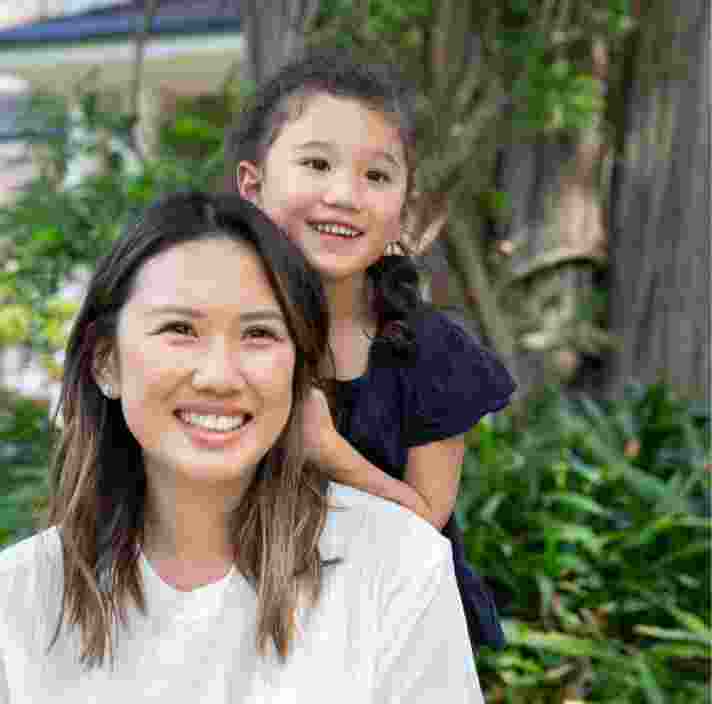
Mobility Camps
Mobility camps are a wonderful social and emotional outlet for children of all ages.
Experiencing changes in your vision can be an isolating experience, and we understand the importance of helping children understand that they are not alone in this feeling.
Our camps are currently run for high school students and gives the children an opportunity to meet and learn with kids their age. Our camps are designed around the expanded core curriculum as well as being a fun mix of adventure and life-skills, designed to equip and empower young people with the tools to develop independence, self-advocacy skills and personal growth while building new friendships.
Your child can learn all sorts of valuable techniques, including:
- Travelling safely: Including skills to move through the community, catch public transport and use mobility aids to travel with confidence.
- Building relationships: Including skills to make new friends and interact with other people in the community.
- Strategies for school and study: Including skills to get around the school yard and inclusion in sport curriculum.
- Preparing for adulthood: Including skills to shop for groceries, cook basic meals, prepare for working life and learn independent thinking and problem-solving skills.
To find out more about our school camps, call our friendly team on 3500 9060 or email clientss@guidedogsqld.com.au.
Funding for educational outcomes
Programs designed to meet students’ educational, development and social needs.
The Department of Education’s SDSS program provides essential funding to allow Guide Dogs Queensland to deliver unique services in support of educational outcomes. These programs are designed to meet students’ educational, developmental and social needs through fun learning activities relevant to their age.
We know how important it is for your child to be able to access their school and education without barriers. By working collaboratively with the school, we can help students overcome these barriers so that they can dedicate more of their attention to learning.
Our experienced instructors and therapists work closely with schools, teachers and parents to ensure the training provided complements the student’s school curriculum, meets their individual needs and provides them with the skills to reach their goals.
The main goal of the program is to ensure students have the support, skills and strategies they need to improve their learning capacity and participate in a variety of school activities.
The Guide Dogs Queensland Specialist team can support students and help them to break down the barriers of disability through inclusion, acceptance and the education of their peers and the school community.

Orientation and Mobility for Students
Our personalised programs help students navigate their school environments safely and independently.
Our Orientation and Mobility Specialists will assess how a student’s level of vision affects their ability to fully participate at school and work with them to develop appropriate Orientation and Mobility goals, including strategies to maintain their safety and independence.
Our team of Specialists also work with the staff and teachers at schools, to make sure all people working with your child have the upskilling and capacity building opportunities they require to support your child.
Our instructors can also recommend appropriate mobility aids for a student to use and work alongside them to reach their personal goals.
Occupational Therapy for Students
Occupational Therapy can help Queensland students with vision loss to develop practical skills that will maximise their independence and support their active participation in the school environment.
Our specialist Occupational Therapists work alongside students with changes to their vision to assist in developing and maintaining everyday skills that increase their confidence. The therapist will support the student by creating a supportive environment by reducing visual limitations.
Before starting a program, they will look at a student’s environment and how their vision influences their ability to complete tasks. This may include things like communication and extracurricular activities. Once they have a good understanding of the requirements, they will work with the student and the school to develop a tailored program that addresses the identified activities.
Assistive Technology for Students
Technology can make life easier for everyone, but this is especially true for a student living with low vision or blindness. Technology plays an important part in assisting a student to access the curriculum and be engaged in activities, which will allow them to be passionate about learning with reduced barriers.
There are many tools and devices that can assist a student to support their goals within the school system. Our Specialists will work with the student and the teacher to determine barriers and to recommend and trial appropriate Assistive Technology devices to ensure the student reach their goals.
Our Specialists will also provide training to the student and the teacher on how to use recommended devices within the school environment.
Psychology for Students
Students that experience a change in vision, must adjust to a new way of understanding the world and how they conduct activities, which can be difficult. Our dedicated team of Psychologists will support a student within the school environment by offering a safe space to talk about their feelings, concerns or challenges related to their change in vision.
These conversations can support a student to advocate for themselves and build strategies to overcome any difficult feelings which can leave them feeling confident, wanting to engage, and get them excited about learning.
Referring a student
Our school outreach program is supported by the Queensland Government through the Department of Education and Special Disability Support in Schools (SDSS).
- Learning practical skills to support them at school
- Increasing confidence and independence in the classroom
- Navigating their school grounds safely and efficiently
- Developing social skills and relationships with peers
- Creating new friendships
- Performing everyday tasks that enhance learning capabilities
- Feeling included in new activities and environments
To receive SDSS funding, students need to have obtained a completed School Request for Support form (SRSF).
If you would like to refer a student from your school, you will need to complete a referral form which you can download here.
If you are the parent of carer of an eligible student, you can apply for a service or contact our helpful team on 3500 9060 or at clients@guidedogsqld.com.au.
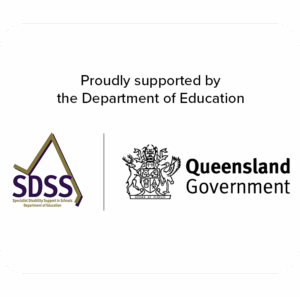
Child safety documentation
Child Protection Policy and Code of Conduct
The team at Guide Dogs take the safety of children in our care very seriously. That is why we have a Child and Youth Risk Management Strategy in place to provide children, young people and their families with a safe, secure, and supportive environment for accessing services and all interactions with Guide Dogs.
Under this strategy, we have our Child Safety Handbook, which outlines the expectations and processes that are required for all involved with the delivery of services to children. You can download a copy of the Child Safety Handbook here.
We also have a Child Protection Policy, which applies to all Guide Dogs employees, and the students, parents and carers we work with. You can download a copy of the Child Protection Policy here.
